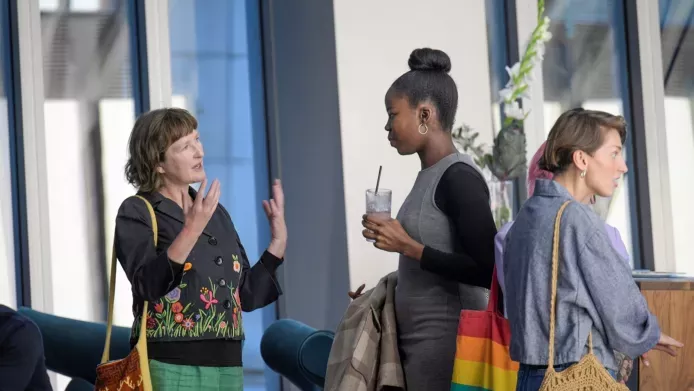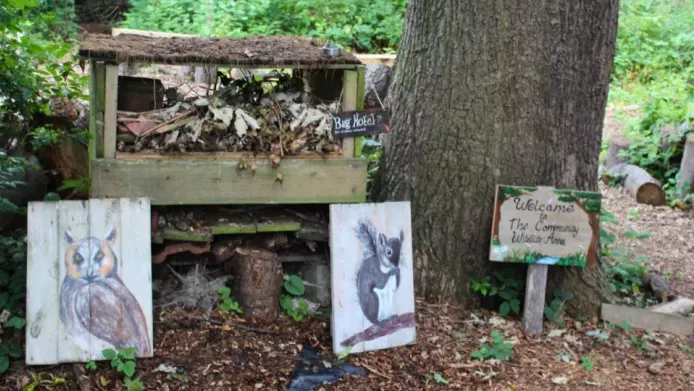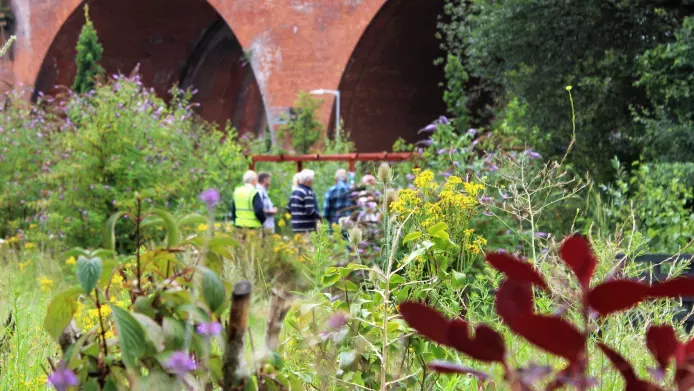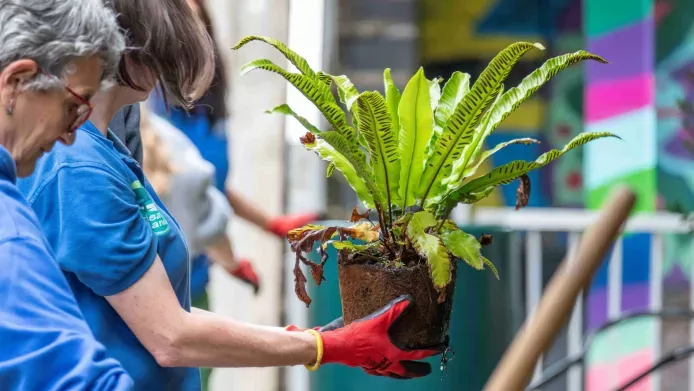Applications to Grow Wild’s Community Programme 2024 are now closed.
All applicants have been informed about the outcome of their 2024 Community Programme application. If you haven't heard a response yet, please get in touch with us. Please also check your junk mailbox to check you haven't missed an email.
Are you part of a community, youth or voluntary group? Has your group got a project idea to connect local people with the natural world? Do you know an urban space that would be ideal for a transformation?
If the answer is yes, apply to join Grow Wild's Community Programme and bring your group's ideas to life. You'll be supporting Grow Wild's mission to bring people together to value and enjoy UK native plants.
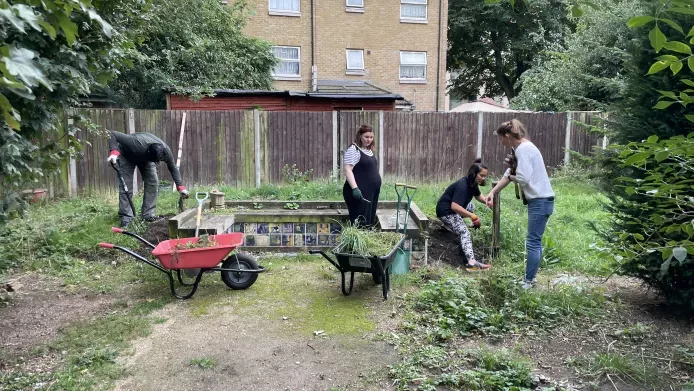 Credit: Women's Environmental Network, Tower Hamlets
Credit: Women's Environmental Network, Tower Hamlets
What is the Grow Wild Community Programme?
Grow Wild’s Community Programme supports groups to transform urban spaces for the benefit of people and wildlife by planting and championing UK native plants.
Grow Wild is seeking 25 fantastic community groups from across the UK to join the programme in 2024.
Grow Wild's Community Programme will support your project with:
- A £2000 grant to transform an urban space with UK native plants, encourage wildlife and engage your local community.
- Tailored online training sessions to support your project delivery, build your knowledge and help you inspire other people to get involved.
- Opportunities to connect with other groups taking part in the programme, share experiences and learn from each other.
The opportunity is more than just financial support - we’re seeking groups who are keen to engage with all aspects of the programme.
Non profit organisations such as:
- Voluntary, youth and community groups
- Resident’s groups
- Community associations
- Health authorities and health boards
Unfortunately we can't fund:
- Schools - look out for our Youth Projects launching early 2024
- Local Authorities directly - but we can fund projects led by independent groups on Local Authority land
- Sole traders or individuals
- Projects where Grow Wild funds could be used for commercial benefit
- Organisations and projects outside of the UK
Grow Wild can only fund projects in urban locations.
Grow Wild can’t support projects delivered in rural, conservation or protected areas such as SSSIs. Grow Wild also can't fund projects requiring planning permission, due to the programme timelines.
As a guide, rural locations can be defined as settlements with less than 10,000 inhabitants.
If you are unsure if your location would be classed as urban, we encourage you to contact us to discuss your circumstances.
Grow Wild is looking for projects that aim to improve local biodiversity by transforming an urban space, with a focus on growing and celebrating UK native plants.
Projects should bring people together to take positive actions for nature and for the wider community.
Grow Wild funded projects need to be completed by the end of October 2024.
For full details on what projects are funded by the Community Programme, see our 'guidance for applicants' page by clicking on the button below.
Why are UK Native plants important to protect?
In the UK we’re lucky to have a wonderful variety of native plant species. As well as bringing colour and interest to our lives, they provide vital food sources and shelter for insects, birds and other wildlife.
Many UK native species are in decline, particularly in urban areas.
Previous participants have said...
'Before accessing the resources, I wanted the area to look pretty, and it can, but what’s important to me now is understanding what the plants do and how they impact biodiversity in the garden ... the information we received was fantastic, consistent, and really supportive. It's probably one of the best funders we've had in relation to support.'
Conquer Life - 2022 Grow Wild Community Programme
'The Grow Wild project has given us a really clear focus and training has been really good too. Honestly, the whole experience has been amazing.'
Ralph Thoresby School, 2023 Grow Wild Community Programme
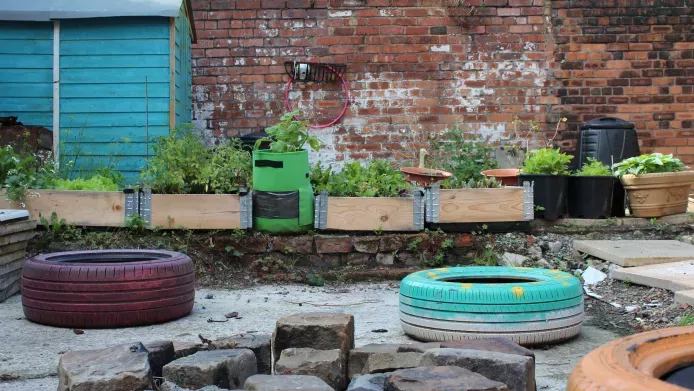
With thanks to our funders
The Grow Wild Community Programme is supported by Alexander McQueen, bringing communities together to value and enjoy UK native plants.
We are also grateful for the gifts in Wills that have supported this programme.
Grow Wild is the national outreach learning initiative of the Royal Botanic Gardens, Kew.
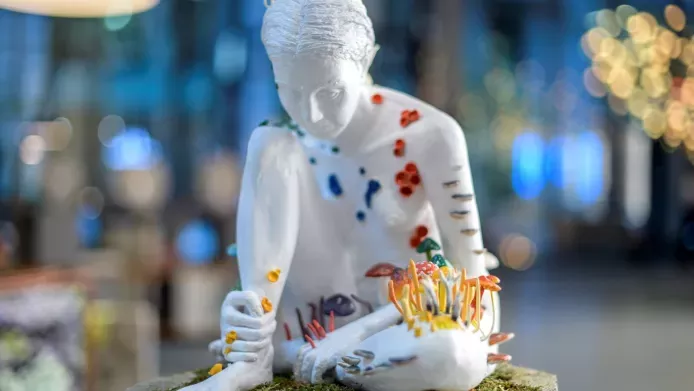
Previous projects
